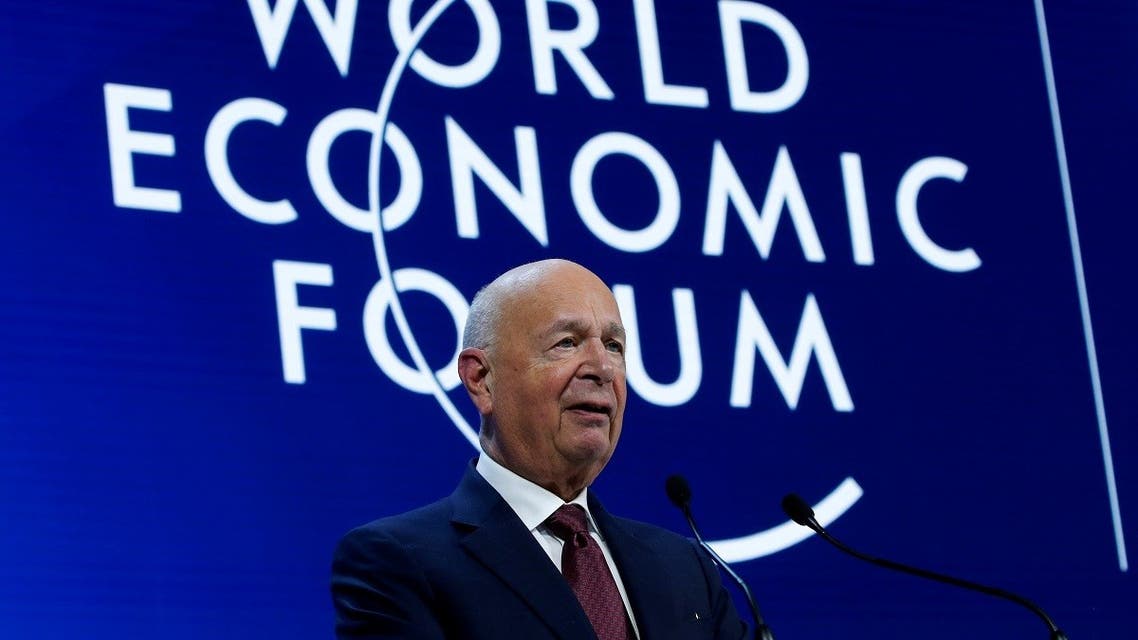DISCUSS: Davos, the hits just keep on coming

The World Economic Forum’s annual Davos conference enters its fourth day today, and the rampant agenda peddling shows no sign of slowing down.
We’ve already seen the powers-that-be roll out all the old classics.
On Monday we had the panel “Ushering in a Safer Digital Future” had a long discussion on making the internet safe from – among other things – “hate speech” and “misinformation”. During which Julie Inman-Grant, Australia’s “eSafety Commissioner”, dropped this beauty of a sentence:
So, I think we’re going to have to think about a recalibration of a whole range of human rights that are playing out online, from freedom of speech to the freedom to – you know – be free from online violence…”
“Recalibrating freedom of speech”. Nice.
Earlier today, we had Pfizer announcing their “Accord for a Healthier World”, featuring Bill Gates on backing vocals.
The “groundbreaking initiative” will see Pfizer giving away all their patented treatments and vaccines for free in 45 different countries across the third world.
This is an act of charity, you understand, to tackle “healthcare inequality”, and not at all a powerplay that will allow Pfizer/Bill Gates huge influence over developing nations, plus use of large populations for huge-scale medical experiments.
Climate change, of course, is everywhere.
We’ve also seen other panels discussing “Unlocking the power of digital health”, hyping up “Central Bank Digital Currencies”, promoting the increasingly creepy mantra “Diversity, Equality, Inclusion”.
Geo-politically, the topics lean very Ukraine-heavy.
There are at least half-a-dozen panels focused entirely on spreading pro-Ukraine propaganda, whilst Russia is noteworthy only for its total absence. One panel straight-up asks “Is a new Cold War taking shape?”
This new East/West split is played up in other panels, such as “An Economic Iron Curtain: Scenarios and Their Implications”.
To us, that reeks a little of the WEF doth protest too much.
Another panel – my personal favourite – asks “is Globalisation Dead?”
Clearly, the answer to that currently is “no”, but the supposed death of globalisation is definitely the Trojan horse narrative right now.
Perhaps significantly this goes hand in hand with several panels discussing public trust.
The very first discussion of the week was called “Rebuilding Societal Trust”, and discusses how Covid19 has highlighted how little trust people have in governments, corporations and institutions.
This suggests they are aware of the same factor we have been pointing up lately – that COVID somewhat gave the elite game away, possibly prematurely.
it permitted us to see the 0.1% from virtually every country in total lockstep agreement over selling the 99% a lie. It demonstrated all too clearly that they were in it together, and not on our side at all.
A lot of us already knew that, but a lot of people didn’t.
Maybe this is why so much effort is currently going in to assuring us elite global co-operation is faltering?
The “special operation” in Ukraine, whatever it’s reasons or rationale, has certainly helped foster that impression too.
But let’s not be taken in. ‘Globalisation’ might be struggling, but globalism is alive and well and continuing to roll out its agenda.
Anyway, it all prompts some interesting questions…
- Which topic or panel is the most concerning moving forward?
- Do these people represent an actual threat? How much of this is preening self-aggrandisement?
- Is there a unifying theme here?
- How is Pfizer going to scam a profit out of pretending to give their medicines away for free?
- Is Russia’s absence sincere, or an affectation?
- Is globalization really dead?
- …are they trying to come over as evil and elitist as possible?
We know there’s a lot to take in here, hell we published a whole article based on less than a minute of conversation from just one panel last night.
We also know we can’t catch everything, so if you want to watch a few panels yourself here’s the link. We would recommend not eating anything for at least an hour beforehand.
If you see anything you think is important, drop it in the comments or send us an email.
Read the full article at the original website
References:
- https://www.weforum.org/events/world-economic-forum-annual-meeting-2022/sessions/ushering-in-a-safer-digital-future
- https://www.weforum.org/events/world-economic-forum-annual-meeting-2022/sessions/pfizer-and-partners-announce-accord-for-a-healthier-world
- https://www.weforum.org/events/world-economic-forum-annual-meeting-2022/sessions/central-bank-digital-currencies
- https://www.weforum.org/events/world-economic-forum-annual-meeting-2022/sessions/the-diversity-equity-and-inclusion-outlook
- https://www.weforum.org/events/world-economic-forum-annual-meeting-2022/sessions/an-economic-iron-curtain-scenarios-and-their-implications
- https://www.weforum.org/events/world-economic-forum-annual-meeting-2022/sessions/is-globalization-dead
- https://www.weforum.org/events/world-economic-forum-annual-meeting-2022/sessions/rebuilding-societal-trust
- https://off-guardian.org/2022/05/24/davos-reveals-building-blocks-for-green-social-credit-system/
- https://www.weforum.org/events/world-economic-forum-annual-meeting-2022/programme
